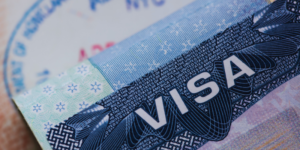Saudi Arabia’s ambitious Vision 2030 initiative has brought sweeping changes to its economic and social systems, including significant updates to immigration policies. These reforms are transforming the way expatriates live and work in the Kingdom, creating both opportunities and challenges.
This blog post unpacks Saudi Arabia’s new immigration policies affecting expatriates, offering insights into the key changes, their implications, and strategies for adapting to the evolving landscape.
Overview of Saudi Arabia’s New Immigration Policies
The Kingdom’s immigration policies have undergone major reforms to align with Vision 2030, aiming to diversify the economy and attract global talent. These changes focus on increasing workforce mobility, simplifying residency processes, and enhancing expatriate rights.
Key Objectives of the Reforms:
- Reduce reliance on oil by fostering new industries such as technology, tourism, and healthcare.
- Create a competitive environment to attract skilled expatriates.
- Improve the quality of life for both citizens and residents.
By reshaping its immigration policies, Saudi Arabia aims to remain a key destination for international professionals and investors.
Key Changes in Immigration Policies
1. Abolition of the Kafala System
- The Kafala (sponsorship) system has been replaced with a more flexible labor framework.
- Expatriates can now change employers without needing prior approval, provided they meet certain conditions.
2. Premium Residency Program (PRP)
- Introduced as a long-term residency option without the need for a sponsor.
- Two types of PRP:
- Temporary Residency: Renewable annually.
- Permanent Residency: One-time fee for lifelong residency.
3. Revised Visa Processes
- Introduction of digital platforms like Absher and Qiwa to streamline work visa applications and renewals.
- Simplified processes for dependents’ visas, including education and healthcare access.
4. Digital Nomad Visas
- Special visas introduced for remote workers, making Saudi Arabia an attractive destination for freelancers and digital entrepreneurs.
5. Enhanced Labor Rights
- Mandatory employment contracts to protect worker rights.
- Grievance mechanisms strengthened to address labor disputes efficiently.
6. Family-Friendly Policies
- Dependents now enjoy greater access to public services, including education and healthcare.
- Adjustments to dependent fees to make family life more affordable.
Benefits of the New Policies for Expatriates
These policy changes bring several benefits to expatriates:
1. Increased Job Mobility
Expatriates have greater freedom to switch jobs without employer restrictions, opening up new career opportunities.
2. Legal Protections
Clear labor contracts and streamlined dispute mechanisms ensure fair treatment and transparency.
3. Long-Term Residency Options
The Premium Residency Program offers stability for expatriates looking to settle in Saudi Arabia permanently.
4. Access to Better Services
Dependents can now enjoy improved healthcare and education, making family life more convenient.
5. Opportunities for Entrepreneurs
Digital nomad visas and a growing emphasis on startups make the Kingdom a fertile ground for entrepreneurial ventures.
Challenges Expatriates May Face
While the new policies are progressive, they come with potential challenges:
1. Adapting to Digital Platforms
Navigating systems like Absher and Qiwa can be daunting for those unfamiliar with technology.
2. Cost of Premium Residency
The Premium Residency Program, while attractive, has high fees that may be prohibitive for some expatriates.
3. Increased Market Competition
The reforms aim to attract global talent, intensifying competition in the job market.
4. Frequent Policy Updates
Staying informed about ongoing changes requires vigilance and effort.
Tips for Adapting to the New Policies
1. Stay Updated on Policy Changes
- Follow official government websites such as the Ministry of Human Resources and Social Development.
- Join expatriate forums and communities to exchange information.
2. Use Digital Tools Effectively
- Familiarize yourself with platforms like Absher for visa renewals and payments.
- Leverage Qiwa to explore job opportunities and manage employment contracts.
3. Seek Professional Guidance
- Consult with immigration lawyers or HR professionals to navigate complex cases.
- Attend informational sessions hosted by expatriate organizations.
4. Build Your Skillset
- Enhance your qualifications to remain competitive in the evolving job market.
- Consider certifications in high-demand fields like IT, healthcare, and project management.
5. Network Strategically
- Engage with local and international professionals through LinkedIn or business events.
- Participate in initiatives like the Virtual Immigration Fair 2024 to explore opportunities.
Frequently Asked Questions (FAQs)
1. What is the Premium Residency Program (PRP)?
The PRP allows expatriates to live and work in Saudi Arabia without a sponsor. It comes in two forms: renewable annual permits and permanent residency.
2. How has the abolition of the Kafala system affected expatriates?
The abolition of the Kafala system has increased job mobility and reduced employer dependency, making it easier for expatriates to switch jobs.
3. Are dependents covered under the new policies?
Yes, dependents enjoy better access to healthcare, education, and other public services under the revised policies.
4. What are digital nomad visas?
Digital nomad visas allow remote workers and freelancers to reside in Saudi Arabia while working for international clients.
5. How can expatriates stay informed about policy updates?
Expatriates should regularly check government portals and subscribe to newsletters from expatriate organizations.
Conclusion
Saudi Arabia’s new immigration policies affecting expatriates mark a transformative era in the Kingdom’s approach to global talent. These reforms aim to create a balanced and inclusive environment that benefits both residents and the economy.
By staying informed, leveraging digital tools, and adapting proactively, expatriates can navigate these changes successfully and take full advantage of the opportunities available in Saudi Arabia.
Whether you’re already an expatriate or planning to move, understanding these policies is crucial for a seamless experience in the Kingdom.
Related Post:- Understanding Saudi Arabia’s New Immigration Policies Affecting Expatriates in 2024




